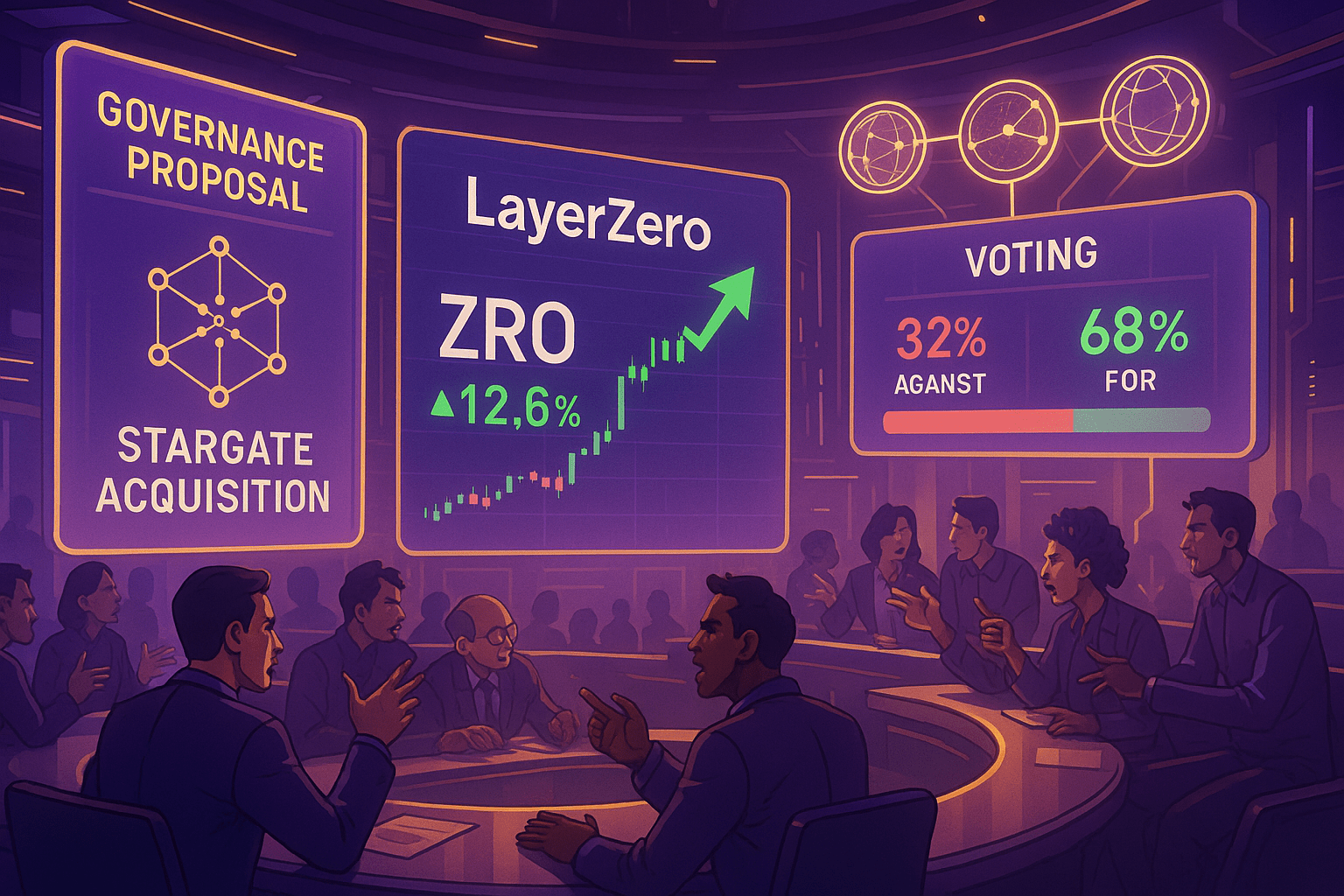
The LayerZero Foundation suddenly announced that it would spend $110 million in full tokens to acquire Stargate. As soon as the news broke, the ZRO token immediately rose by 12.6%. However, the community was in an uproar, with many questioning: Such a significant matter, why not first ask the opinions of token holders?
From a business perspective, this acquisition is indeed reasonable. Stargate is a mature cross-chain bridge protocol with a stable user base and rich technological accumulation. LayerZero acquiring it can quickly expand market share, integrate technological advantages, and build a stronger cross-chain ecosystem.
But the problem lies in the decision-making process. The foundation acted unilaterally, with the acquisition details and valuation basis being opaque, making many token holders feel marginalized. This approach completely contradicts the original intention of decentralized governance, so it's no wonder the community is so angry.
The reaction of the Stargate community is quite complex. Some people feel that being acquired by LayerZero is a good thing, as it can provide more resources and support. Others are worried about losing independence and the impact on innovation capacity. Both sides have valid points, and it's hard to say who is right or wrong.
This matter reflects the core contradiction of DeFi governance. Traditional companies have high decision-making efficiency but lack transparency, while complete decentralization is too inefficient. Balancing efficiency and democracy is a challenge that all DeFi protocols must face.
The technical integration has great potential. LayerZero's full-chain interoperability combined with Stargate's cross-chain bridge technology can provide users with a better cross-chain experience, reducing costs and risks. From this perspective, the acquisition is a win-win situation.
Market analysts generally view this transaction positively. Cross-chain interoperability is the major trend in blockchain development, and achieving technological synergy through acquisition and integration is an inevitable trend. The key is how to achieve efficient decision-making while maintaining the spirit of decentralization.
Ultimately, it will depend on the community vote. Regardless of the outcome, this will become an important case in the history of DeFi governance. It reminds us that in the pursuit of commercial success, we must not forget the original intention of decentralization, and that improving efficiency should also respect the voice of the community. The outcome of this governance game will influence the future direction of the entire DeFi industry.



